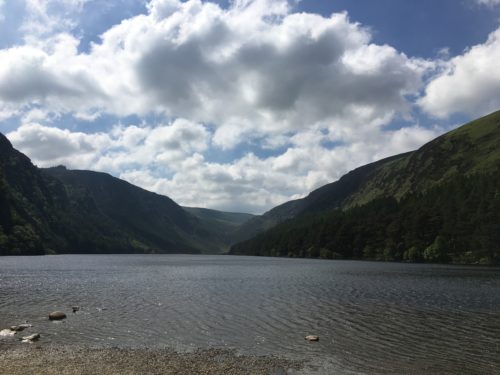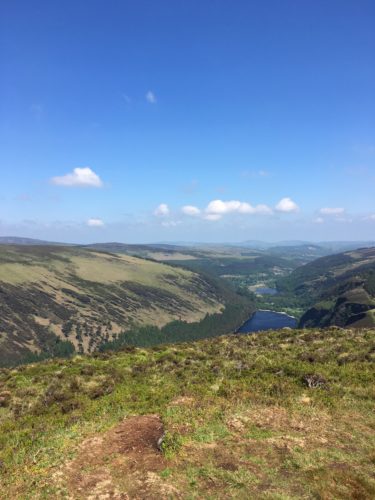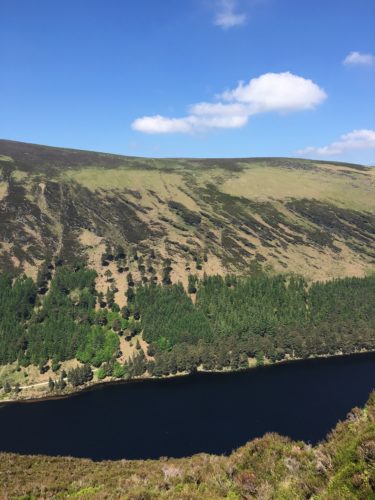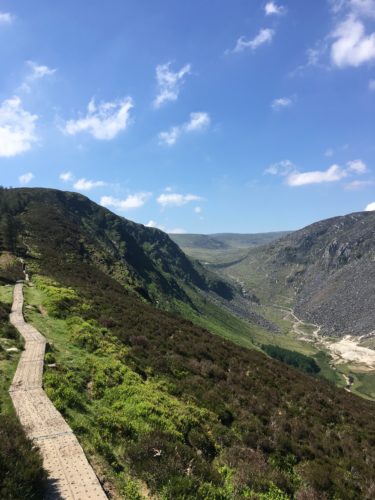A year ago today, I had the honor of serving as the student commencement speaker at my graduation from the University of Scranton (29:00 minutes in), after which I saw my year as a Mitchell Scholar begin. In this speech on the tension between walls and migrations, I built off of my Mitchell application and the vision I had for studying in Ireland, a land which has seen its history defined by such a tension – a history we explored as a Mitchell family at the EPIC museum in Dublin and walking along the walls in Belfast; one of the memorable lines from my address was this: that the world needs less people who live to succeed and more people who succeed at living. I could not have found such wonderful people who fulfill this criteria than my fellow Class of 2017 Mitchells.
As I explored the Wicklow Mountains the other day on a gorgeous Irish summer day (quite rare so far), I came across a trail-head sign delineating the possible hikes for the day. One word – hillwalker -caught my attention. In my biodiversity and conservation class, we had come across lawsuits regarding hillwalkers, people who hiked off the beaten path, trailblazers, renegades, or simply Dubliners with an adventurous spirit, who would often hike across the farmland and sheep-land of many on their excursions – no walls impeded their paths. The courts often would side with hill walkers; a similar experience occurred while I was in the English countryside visiting friends the other month, where I learned that farmland had to be kept open for hikers.




Hiking in the Wicklow Mountains.
In Ireland, ownership of the land has always been a tension, as the Imperial British would often take land from the Catholics and/or divide it to lessen the landholdings of the Irish. Their still remains a conscious tie to the land for the Irish and its importance, and the example of the hill-walkers reveals how the Irish have sought to tear down walls of oppression or physical barriers to their culture since Independence. Tied into this history of walls of oppression, the Irish have the memory of repeated emigrations and migrations.
Migration, has, to me always been about growth and peace. Seeking a better life, dialogue with one’s neighbor, and building bridges, not walls. The island of Ireland’s history is a history of migration. To witness first hand the progress that has been made in the North since George Mitchell’s work in bringing about the Good Friday agreement has been astounding; so to has the response of Northern Irish and Irish alike in working to ensure that no hard border – no wall – is produced from Brexit, but rather a flow of ideas, peoples, and culture continues across the border: a migration.
Coming back to America will be a migration for me, a full circle of a year, but I know that I will be proud to consider myself among the ranks of Mitchell Scholars: people who have found a passion to bring about positive change in the world through the reduction of barriers and the promotion of leadership, exchange, and peace.
